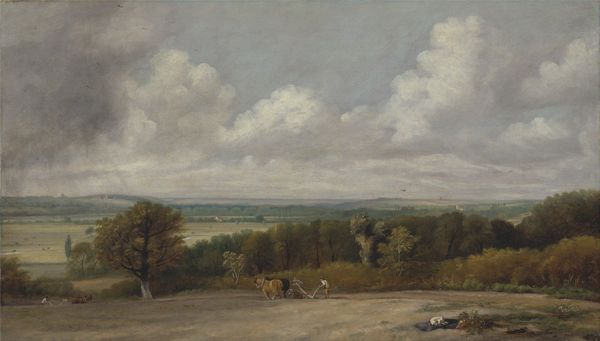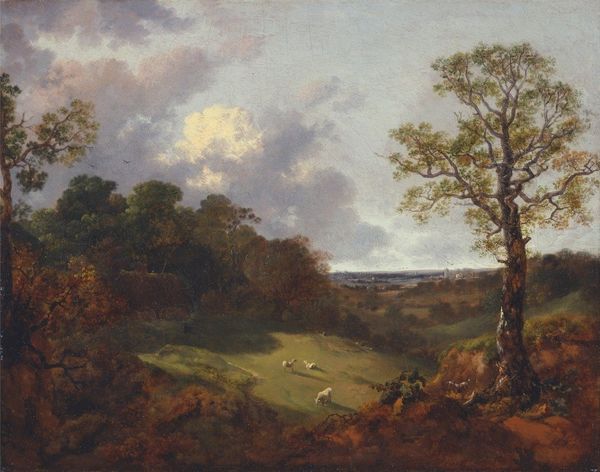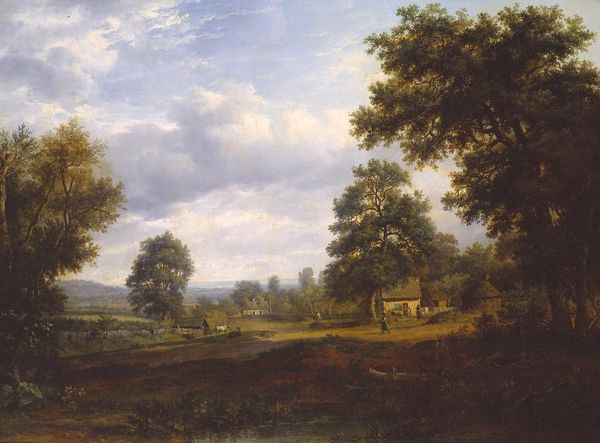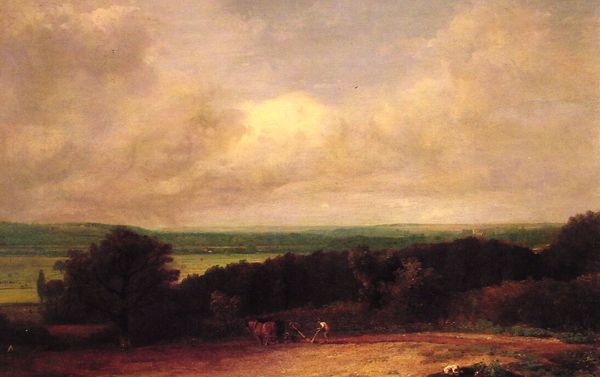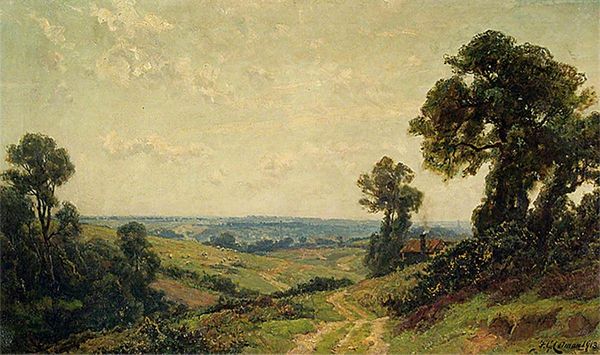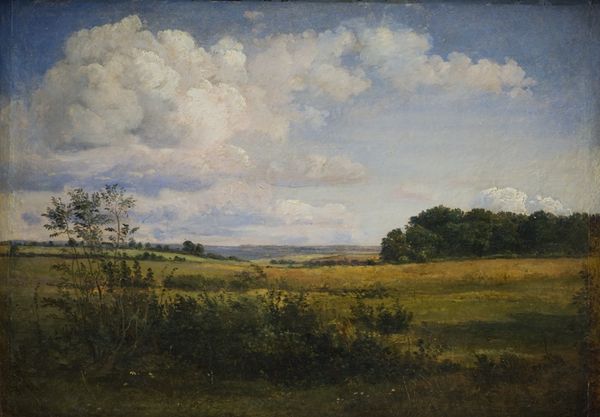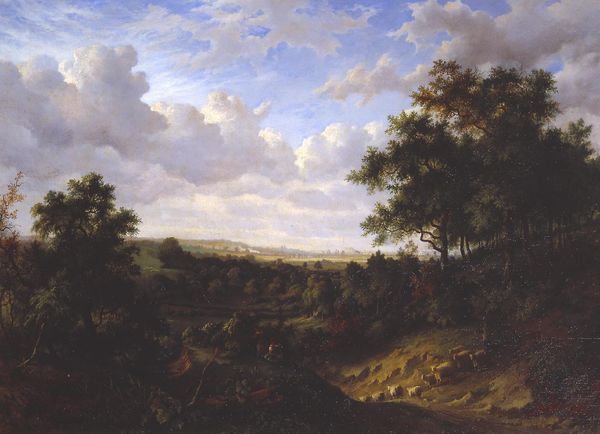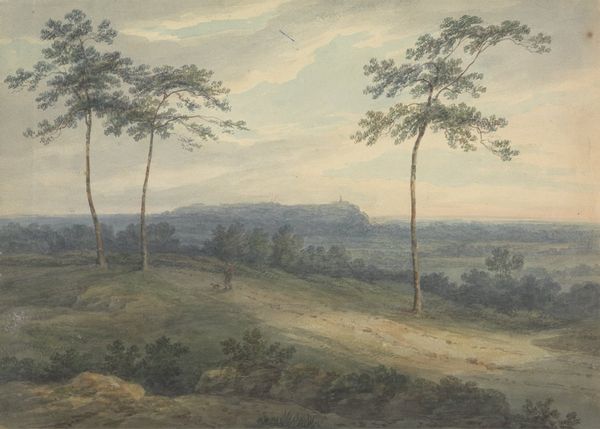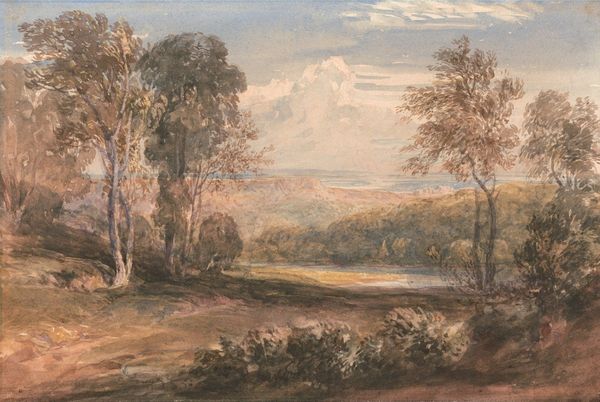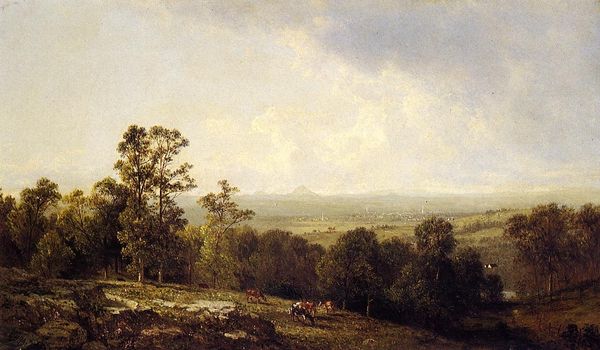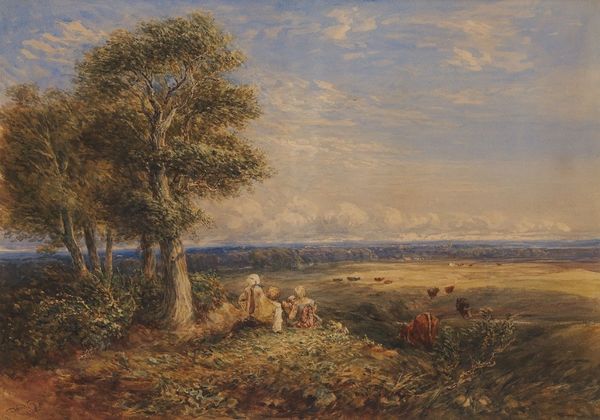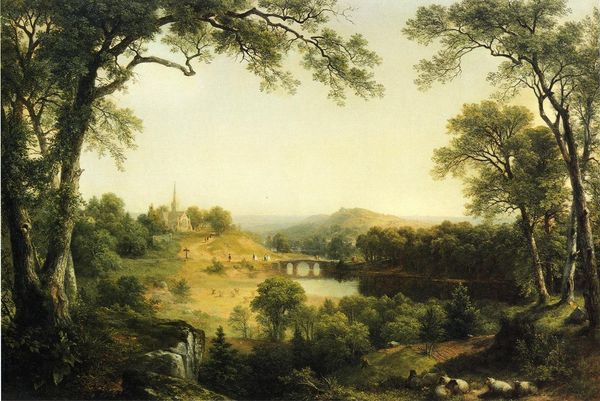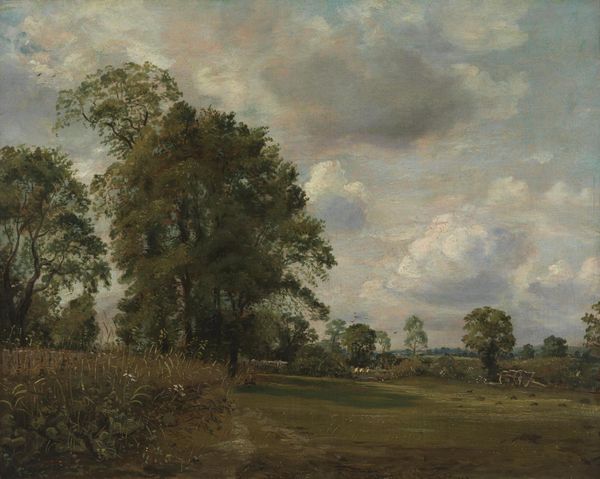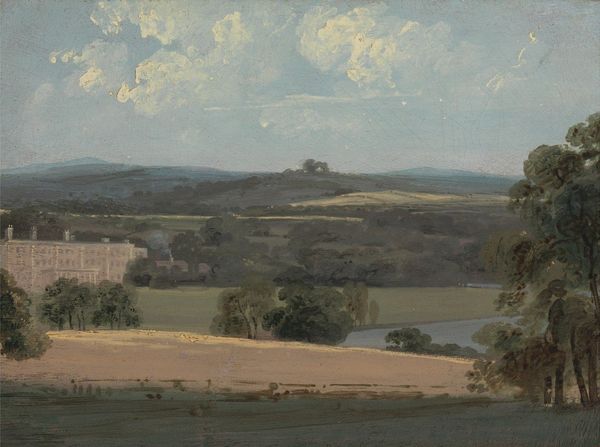
plein-air, oil-paint
#
plein-air
#
oil-paint
#
landscape
#
nature
#
oil painting
#
romanticism
#
history-painting
#
realism
Copyright: Public Domain: Artvee
Curator: Oh, this painting just radiates peace, doesn’t it? Like a Sunday afternoon nap in picture form. Editor: It certainly has a stillness to it. What you’re looking at is "Dedham Vale," painted by John Constable in 1802. It's oil on canvas and exemplifies, even at this relatively early point in his career, his devotion to capturing the English countryside. Curator: It’s more than just ‘capturing’, though. It's like he bottled the very essence of this place. You can almost smell the grass and hear the wind rustling in the trees. The composition, too! It draws your eye into the distance with such ease, doesn’t it? Editor: Indeed. Notice how Constable employs what we call a "picturesque" aesthetic? The careful arrangement of trees framing the scene, the elevated viewpoint… these are all deliberate strategies to evoke a particular kind of pleasing, yet "natural," experience. Curator: See, I just think it's lovely. Though it has a somewhat brownish-gray, muted, earthy palette which evokes a rather pensive, maybe even slightly melancholy feeling for me. Do you think it romanticizes rural life too much? Is that why the palette is almost understated to prevent an exaggerated view? Editor: That's a pertinent point! Considering its ties to Romanticism and Realism. Constable presents us with an idealized version of the English countryside, free from industrial impact or societal hardship. The figure, almost concealed in the foreground, emphasizes the vastness of the vale while almost disappearing and leaving us alone with nature and the view. Curator: Makes you wonder what he's dreaming of. I bet it involves endless fields of wildflowers and maybe a pint at the local pub! Do you think we need him to make the nature that real? Is this view too beautiful to bear alone, but that having a figure somehow grounds the beauty of nature and gives the spectator a guide for how to feel and react about the scale and the scope? Editor: A guiding consciousness. The interplay of form and subject within a historical and social context…fascinating, isn’t it? It provokes contemplation of not just landscape painting's aesthetic qualities, but of its deeper symbolic registers. Curator: That's where the real magic lies, doesn't it? It's more than just paint; it's a window into a world, and perhaps even into a soul. Editor: Precisely. Each of Constable's brushstrokes serves as both visual description and invitation to analyze cultural meanings embedded within the landscape tradition.
Comments
No comments
Be the first to comment and join the conversation on the ultimate creative platform.
